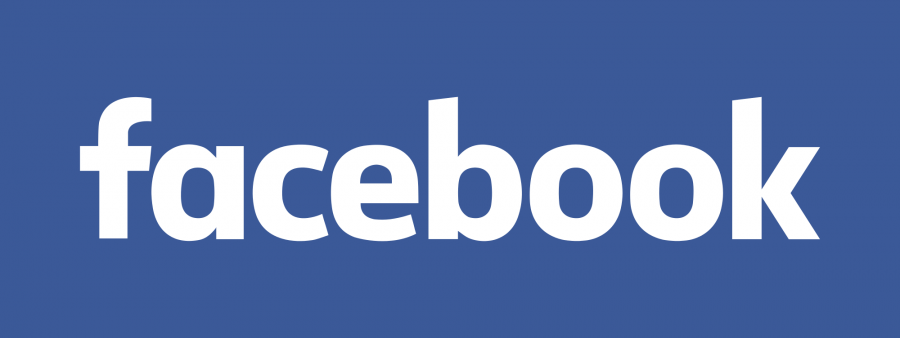How News Consumption Causes Political Polarization
Homecoming Issue
October 21, 2016
Today, the majority of Americans receive their news from a single web site, placing the free distribution of ideas largely under the power of a single company–and that’s a problem. According to a recent study by the Pew Research Center, 62 percent of American adults said they got their news on social media in 2016, and that number is rising quickly. This statistic holds among students at our school; when asked where she gets her news, Marie DeVoll ’18 said: “I follow Delaware Online on Twitter, and get notifications about what’s going on.” The convenience and relevancy of updating newsfeeds offered by social media sites is undeniable, and accounts for their popularity. Many believe getting your news online is simply a natural progression from the days of physical newspapers and radio; in our new age, consumers have merely shifted to a new media. However, this parallel is not applicable. With the change in news consumption, the majority of social media consumers flock to a single website: Facebook. Today, 44% of Americans get their news from Facebook, giving it greater power than any other company that offers news in America. By comparison, only around 15-20% of Americans read a daily paper. Emily Rossi ’17 stated: “I get all my news off Facebook pretty much on a daily basis. I scroll through the news feed and look at things my friends have liked.” This dependency is only increased as readers get younger; for millennials, this is by 51%. Through this near monopoly, Facebook, being the central gateway to news, has the enormous power of controlling the distribution of ideas in our country.
The fact that the majority of Americans check their news on Facebook may seem harmless; after all, Facebook objectively shows you news from all around the world or content your friends share with you, right? But the essential problem here is that Facebook is not a news site. Instead, Facebook is fundamentally a social media site, whose aim is to make advertising money by showing consumers content that is entertaining or engaging; Facebook’s main interest in news is to generate likes and comments to ensure user happiness, not to provide objective and illuminating information. It has highly developed algorithms to maximize its efficiency at these goals, shuffling around your newsfeed so you are most likely to see content that you agree with, have previous positive associations with, and are likely to engage with. None of these are standards for good information, and it’s not that we don’t know that. As Jake Morris ’18 stated: “It’s really important for us to read the things we do want to read and agree with, but also the things we’re not as interested in reading about or don’t agree with as much.” As well-intentioned as any individual Facebook user may be might be, Facebook does not give its readers that opportunity to read a variety of opinions and perspectives, and by readers, I mean 51 percent of our younger population. As Rossi stated, “a lot of my friends have really similar interests and that translates to what I see online. It’s not that I want to necessarily, but it’s just what I see.” By understanding this reality, one can begin to understand the political polarization our country is facing today; by relying on Facebook or other social media sites for their news, well-meaning Americans are surrounding themselves with pre-established beliefs, building walls around themselves until they are unable to understand those whose opinions differ– people who in turn, have constructed similar walls of their own, making political discourse polarized to an extent unprecedented in our post-Civil War history.
Facebook’s idea of catering to people’s pre-existing beliefs is not new. Those who have taken a Theory of Knowledge course at Friends with Javier Ergueta or Rebecca Zug will know this concept as “confirmation bias”: a cognitive bias to support beliefs we already hold, including the tendency to notice and accept confirming information while ignoring or rationalizing disconfirming information. “It’s so important that we call ourselves out on [cognitive bias] when we read, but it’s easy to fall back into indulging our old ways, especially when it’s so much a part of human nature,” stated Hannah Kushner ’17. This bias is innate, and Facebook not only sanctions it, but encourages it. By this point, you might be getting frustrated: according to this article, we are essentially flawed, there are companies out there who capitalize on our flaws, those companies do extremely well while they distort our national discourse, and the whole world might as well be going to hell in a handbasket because there is nothing we can do to fix it, just like so many other things out there. However, this is one case where that is not true: we can change things. “It’s hard to read things that are not of your own opinion, but I really try to limit [practicing cognitive bias] in my news consumption, especially after learning about it in TOK,” explained Rachel Ramirez ’17. In today’s age of technology and information, we don’t need to rely on primitive algorithms indulging our close-minded tendencies. This may mean going to various news sites themselves and clicking on articles which may be somewhat outside your safety zone. Or it may mean joining one of the many clubs at Friends which encourage diversity of thought and genuine discussion. Regardless, this is on you. As Ergueta stated: “In my class, I try to teach my students that the world they inherit is not the one they must live in. In line with Quaker philosophy, I believe everyone has the ability and the responsibility to step away from mainstream culture and act for themselves- and that starts with thinking for yourself.” This election season, you have the responsibility to do just that: break from the easy, yet dangerous mainstream route, and start thinking for yourself.































